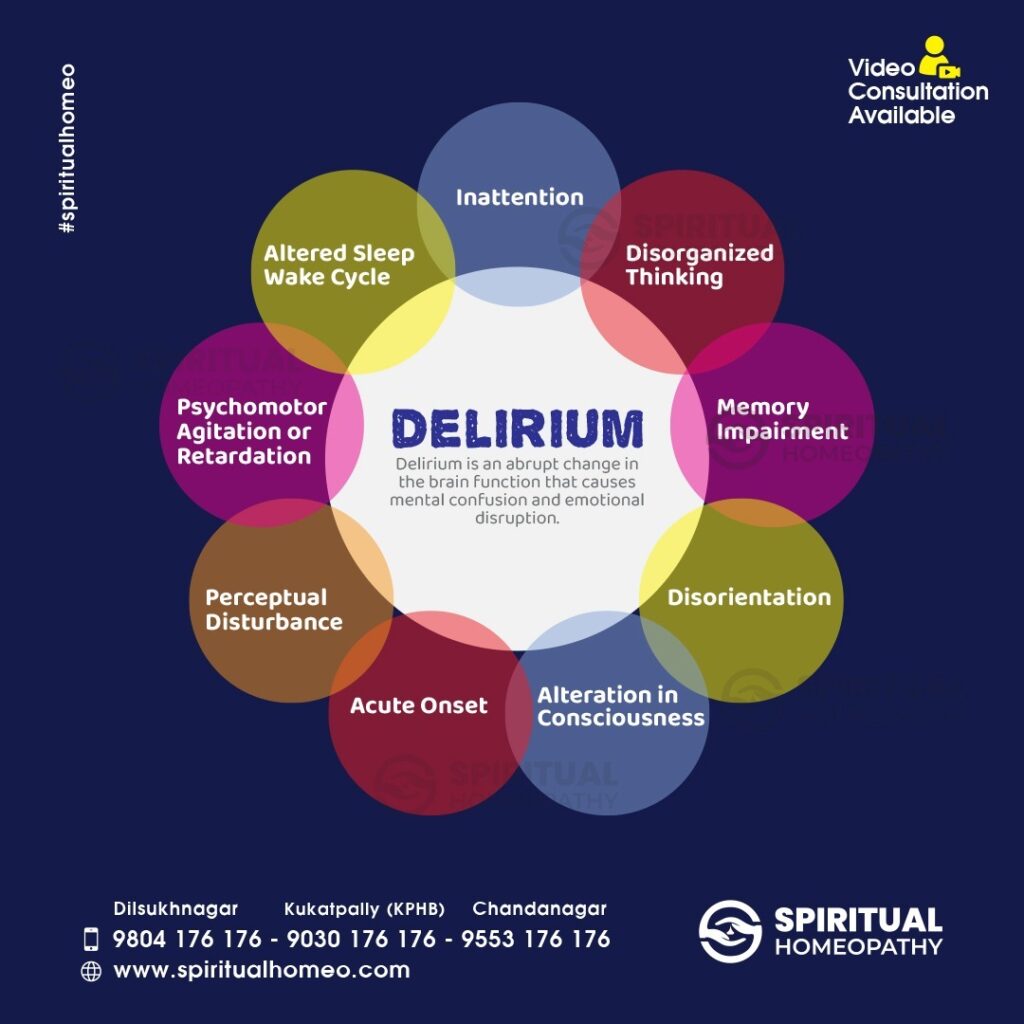Delirium, also known as acute confusional state, is a medical condition characterized by a sudden onset of confusion, altered consciousness, cognitive impairment, and changes in perception and behavior. It is often caused by an underlying medical condition or a combination of factors, such as medication side effects, infections, metabolic imbalances, or drug or alcohol withdrawal.
Delirium is more common in older adults, especially those with pre-existing cognitive impairment, but it can affect people of any age. The symptoms of delirium can vary but typically include:
Altered mental state: Individuals may experience confusion, disorientation, difficulty focusing or sustaining attention, and memory problems. They may have trouble speaking coherently or understanding others.
Fluctuating symptoms: Delirium symptoms can fluctuate throughout the day, with periods of increased confusion and periods of relative clarity.
Changes in perception: People with delirium may have hallucinations (seeing or hearing things that are not there) or delusions (holding false beliefs).
Disturbed sleep-wake cycle: Delirium can disrupt the normal sleep pattern, leading to increased sleepiness during the day and restlessness or agitation at night.
Emotional disturbances: Individuals may exhibit sudden mood changes, anxiety, irritability, or depression.
Physical symptoms: Delirium can be associated with physical symptoms such as tremors, rapid heartbeat, sweating, and changes in appetite.
Prompt identification and treatment of the underlying cause of delirium are essential. Healthcare professionals will typically conduct a thorough evaluation, including medical history, physical examination, and sometimes additional tests such as blood work, imaging studies
Management of delirium involves addressing the underlying cause, providing supportive care, and ensuring a safe and calm environment. Treatment may include:
HomeopathicMedications: Depending on the cause, specific homeopathic medications may be prescribed to treat infections, correct metabolic imbalances, or manage symptoms such as agitation or hallucinations.
Environmental modifications: Creating a calm and familiar environment, promoting regular sleep-wake cycles, and minimizing sensory overload can help reduce confusion and agitation.
Supportive care: Providing reassurance, maintaining hydration and nutrition, and assisting with activities of daily living can help manage the immediate needs of individuals with delirium.
Prevention of delirium is important, especially in high-risk populations such as older adults in hospital settings. This may involve measures such as optimizing medication use, ensuring proper pain management, promoting early mobilization, and addressing sensory impairments.
If you suspect someone may be experiencing delirium, it is crucial to seek medical attention promptly. Delirium can be a medical emergency, and timely evaluation and management can improve outcomes and prevent complications.
Book an Appointment
Take the first step towards better health with Spiritual Homeopathy Clinics with best homeopathy doctors in Hyderabad
Call Us:
- KPHB: 9030 176 176
- Chandanagar: 9804 176 176
- Dilsukhnagar: 9553 176 176
Enjoy the convenience of online consultations. Book your appointment through our mobile app, available on the Play Store and App Store under the name “Spiritual Homeopathy.”
Start your journey to holistic healing today. Book your appointment now!



